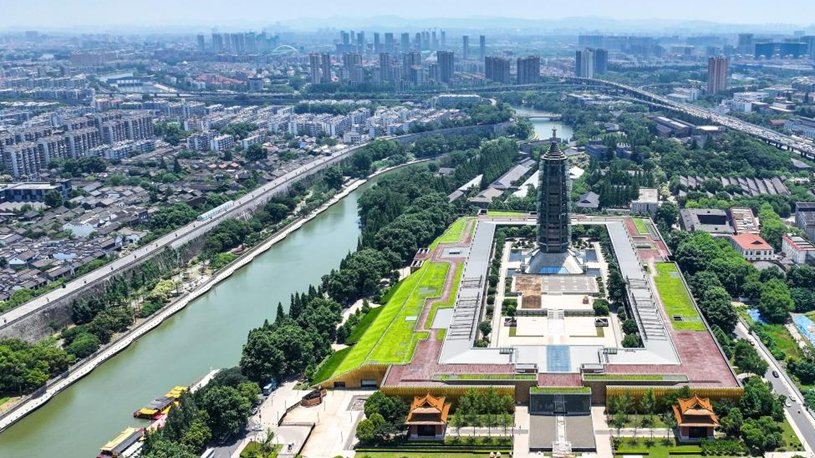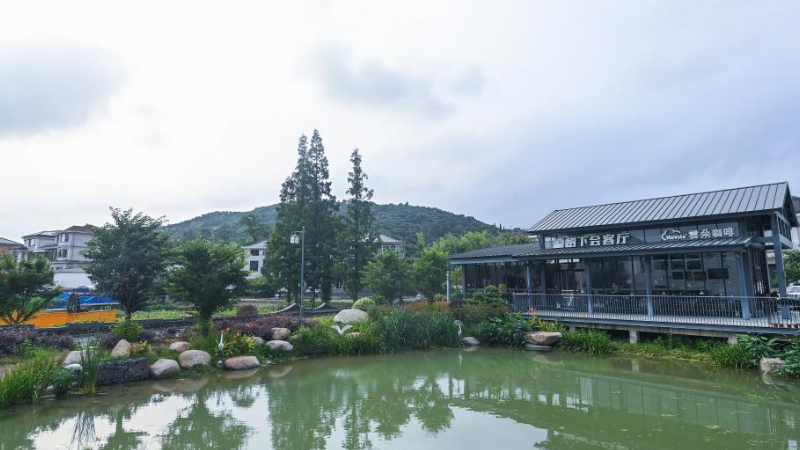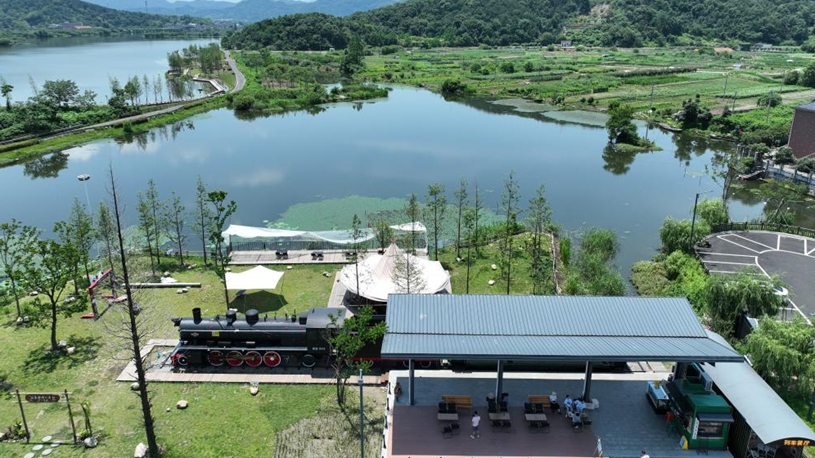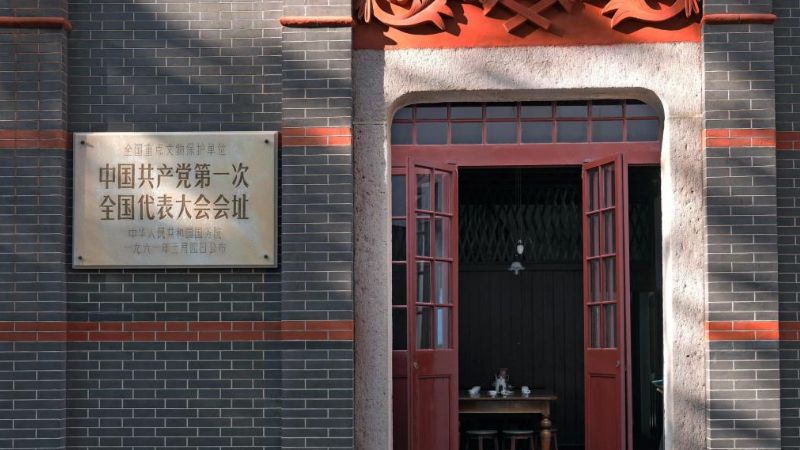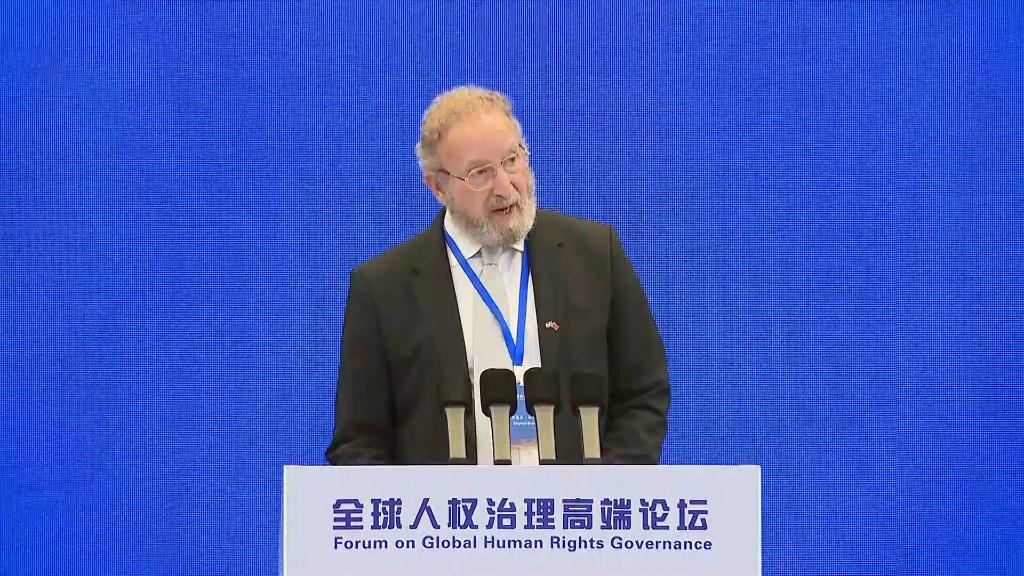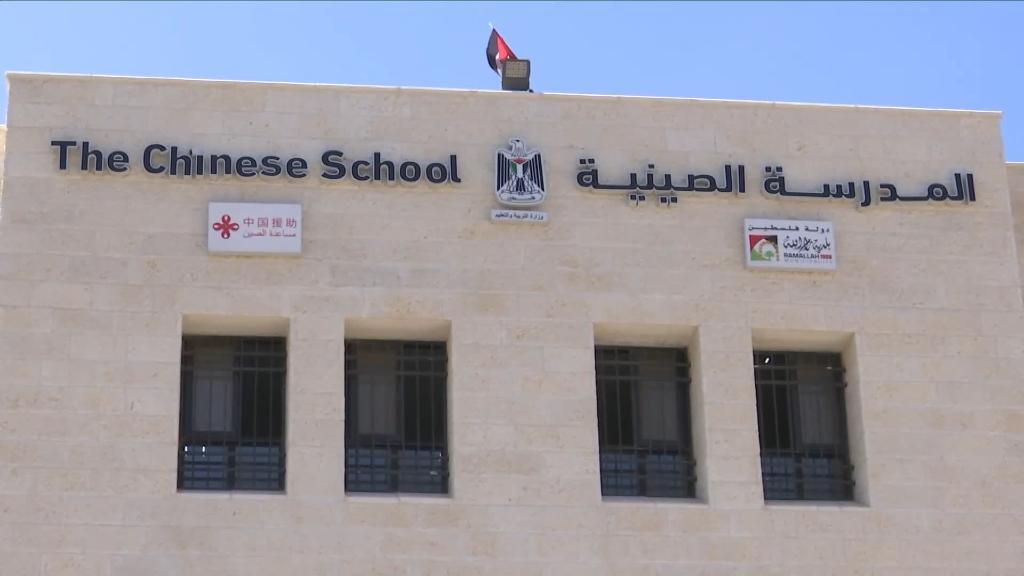
Jakarta-Bandung High-Speed Railway EMU driver trainees walk inside the campus of the Indonesian Railway Polytechnic in Madiun, East Java, Indonesia, June 7, 2023. (Xinhua/Xu Qin)
Throughout the Jakarta-Bandung HSR construction, the Chinese side provided training for Indonesian employees in an effort to support Indonesia in building its own HSR technical force and workforce.
by Xinhua writers Xu Qin, Yu Qianliang
JAKARTA, June 15 (Xinhua) -- Madiun, a small Indonesian city in East Java Province more than 8 hours of eastward drive from the capital Jakarta, is where the Indonesian Railway Polytechnic (PPI) is based.
After driving halfway through the densely populated Java Island and getting off the expressway to enter the town, a 1 km pained wall showing almost all kinds of trains you can imagine will be seen along the Madiun River, the largest tributary of the Solo River, on the way leading to the PPI campus.
Madiun has evidently a deep bond with the railway, which is also the seat of the state-run Railway Industry Co., Ltd. The company's products are shipped to Malaysia, Thailand, Singapore and Australia, among others.
Sitting on a vast stretch of a green field, the PPI campus enjoys a distant view of Lawu Volcano and the nearby scenery of the Madiun River. Here the first training courses are currently going on for operation and maintenance personnel of the Jakarta-Bandung High-Speed Railway (HSR), attended by 173 Indonesians and taught online by experts at Chinese railway institutes far away.
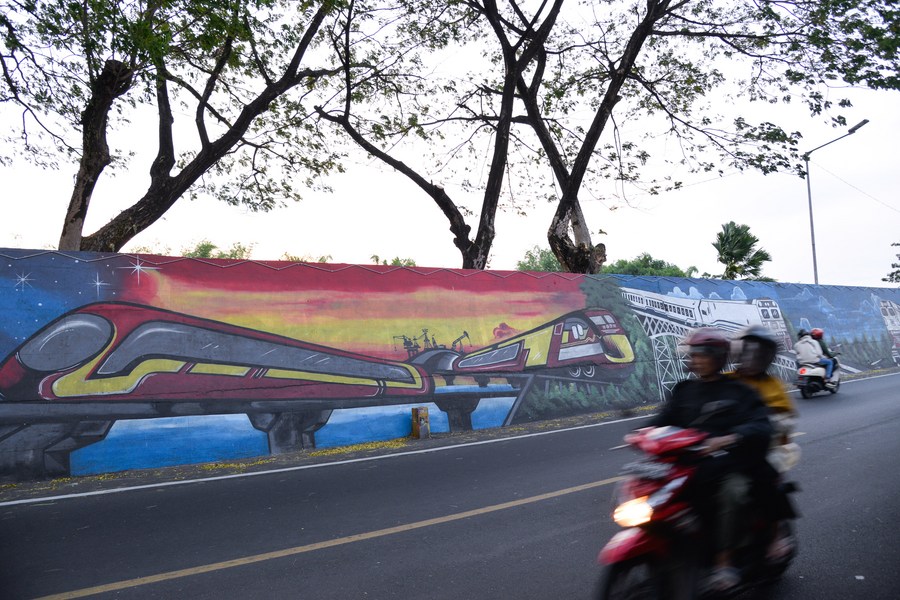
Photo taken on June 6, 2023 shows a painted wall showing various kinds of trains by Madiun River in Madiun, East Java, Indonesia. (Xinhua/Xu Qin)
Classes started at the end of February, with 3-6 month theoretical training courses targeting EMU (electric multiple unit) drivers, EMU mechanicians, operation control center dispatchers, and emergency response personnel.
In each classroom, trainees are helped by two on-site interpreters in understanding the contents stated in Chinese, and raise questions any time they like. They have also teaching plans and materials in Indonesian to read, which were prepared beforehand by about a dozen translators in an arrangement made by the Chinese side of the Jakarta-Bandung HSR.
All the interpreters and translators are employees of the Jakarta-Bandung HSR construction companies, who are both proficient bilinguals and masters in railway knowledge.
Serving as such a "bridge" between Chinese teachers and Indonesian trainees is Liu Shuyuan, who builds on a two-month interpreter working experience once before coming here.
"Transferring HSR knowledge or HSR technology, I'm very happy to make my small contribution to the construction of the Jakarta-Bandung High-Speed Railway," she said.
In the class, trainees listen attentively and take notes. After each week of study, they would face random oral quizzes given by the interpreters.
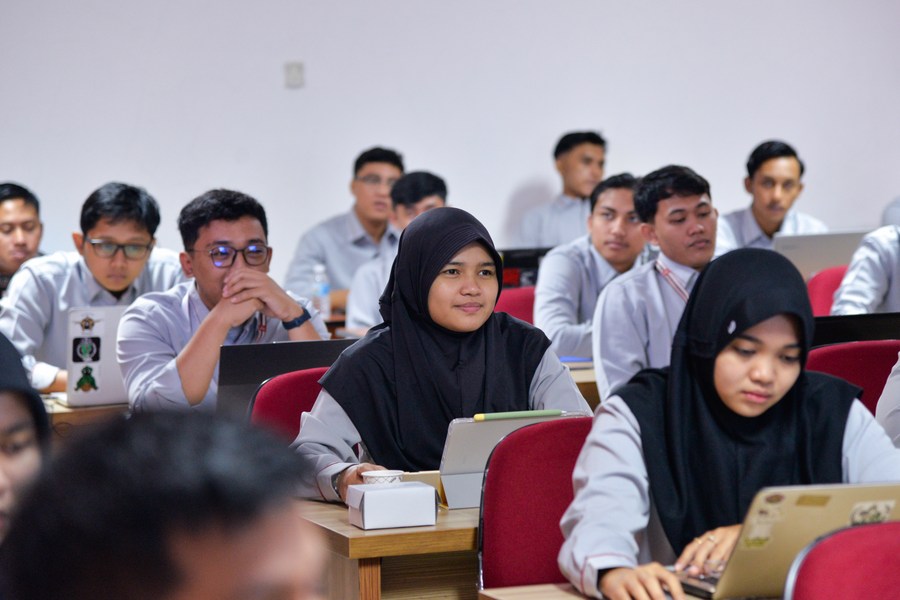
Nisrina Azzahra Kurniawan (C) attends the training class for emergency response personnel at the Indonesian Railway Polytechnic in Madiun, East Java, Indonesia, June 7, 2023. (Xinhua/Xu Qin)
The trainees cherish the opportunity of learning, and often spend the few minutes of break between classes in discussions with each other or seeking help from interpreters in reviewing the lectures.
"My training is coming to an end, and I can't wait for the upcoming practical operation," said Nisrina Azzahra Kurniawan, a 23-year-old female trainee expected to work as a first responder.
She joined the consortium of Indonesian and Chinese companies operating the Jakarta-Bandung HSR, PT KCIC, this year, and is currently an intern at the company.
"After more than three months of study, I feel that there is still a lot that I don't understand. I am looking forward to applying what I have learned to the specific work," she said.
Bahana Putra Perangin Angin, 29, who joined PT KCIC in 2019, is a trainee in the EMU mechanician class.
A PPI alumnus, he said, "I am here learning and researching the new technology of high-speed rail, and I hope that more people will benefit from high-speed rail in their future lives."
Nisrina, Bahana and other trainees will leave Madiun with qualifications before being arranged for practical training on the Jakarta-Bandung HSR.
Farida Makhmudah, the PPI's head of Finance, General Affairs and Cooperation, said, "Together our students and teachers have overcome the language barrier and made the training go smoothly. I hope they can pass the assessment and enter corresponding job positions."
"The Jakarta-Bandung High-Speed Railway is not only the first high-speed railway in Indonesia, but also the first of its kind in Southeast Asia. Our students will soon be able to take high-speed trains in our own country," said the PPI official.
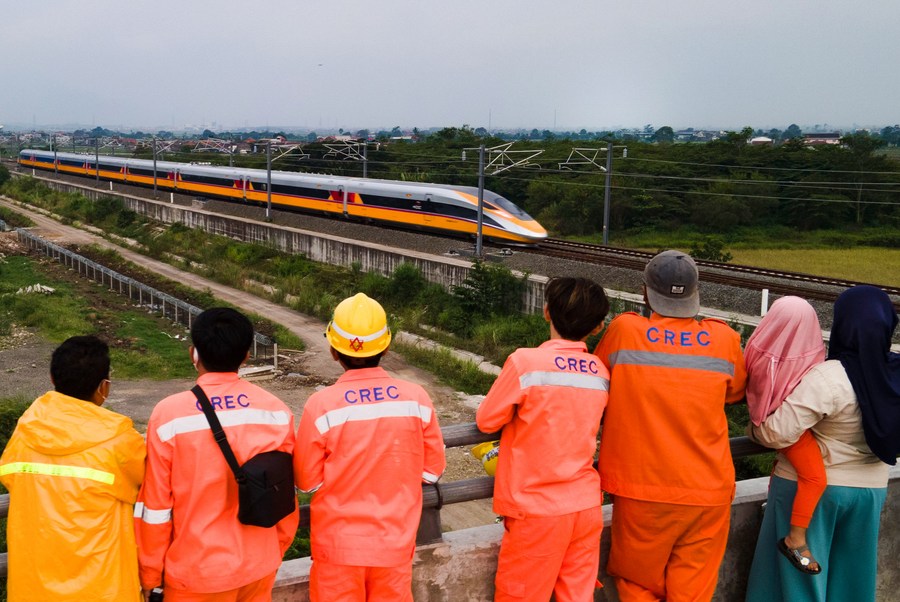
This aerial photo taken on Nov. 16, 2022 shows workers and local residents watching a comprehensive inspection train running on the Jakarta-Bandung High-Speed Railway trial section in Bandung, Indonesia. (Photo by Li Peiyang/Xinhua)
Throughout the Jakarta-Bandung HSR construction, the Chinese side also provided training for Indonesian employees in an effort to support Indonesia in building its own HSR technical force and workforce.
More than 45,000 Indonesian personnel have attended such training programs offered by the Chinese side.
At present, the joint commissioning and testing of the Jakarta-Bandung HSR have already started.
The high-speed railway, a flagship project under the China-proposed Belt and Road Initiative, connects Indonesia's capital Jakarta and another major city Bandung.
With a design speed of 350 km per hour, the railway will cut the Jakarta-Bandung journey from over three hours currently to around 40 minutes. ■

